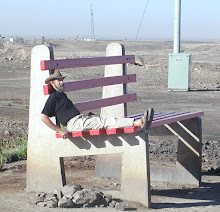Friday, 31 July 2020
On Diversity
Homogeneity
tends to breed greater trust than diversity.
If your neighbor is more like you, you tend to trust him more than if
his culture is different. If his culture is different, if he thinks differently
than you do, you are not sure what he will do in a situation. That breeds mistrust. If his reactions seem strange to you, you are
troubled. You are troubled by what you don’t
understand.
So, in a
diverse society, the challenge is to find out what the diverse people believe,
how they think and allow yourself to say “I can see that. It really is not so
troubling.”
That’s a can
be a tall order when your culture and your neighbour’s culture believe in mutually contradictory
things:
·
If you believe that arranged marriage will make
a better union for your child than letting men and women pick each other and
your neighbour thinks that arranged marriage is akin to slavery, you have a
problem. Can you agree to disagree, or is
that not enough.
·
If you believe that abortion is killing babies
and your neighbour believes that all women have the right to choose, you have a
difficulty. Your art of persuasion will
be sorely tested.
·
If you believe that climate change is the worst
crisis facing humanity and you neighbour thinks it is non-existent or a hoax,
you have a difficulty. Will science be
enough, even for people who do not believe in experts or in science
·
If you believe that privilege is something you
earn and your neighbour believe that white privilege is not earned, even more
thinks it is responsible for some of his woes, you have a problem. Do you convince the white man that he does
not deserve all he has been given or do you convince the person of colour that
not all of their woes are down to white privilege. Or both?
·
If you believe that the police are there to
protect you and your neighbour believe the police are out to get them, you have
a difficulty. What if the police ARE
there to protect you AND are out to get your neighbour? Time to change the police? In what way?
Indeed most countries are diverse, but who is doing better
at managing that diversity?
Some of the best at managing diversity have very little of
it. (Japan, the Koreas, Portugal,
Poland, Albania, Greece, Germany, Scandinavia).
Those who have lots of diversity
have different ways of dealing with it. New
Zealand, Australia, Canada and the USA have passed many laws to encourage
diversity, though the degree to which this has entered the culture of these
nations is spotty.
Other have simply given up the ghost: Yugoslavia
split and is still coming to grips with it, Russia split and may split again, the
UK and Spain my well split, but splitting will just kick the problem down the
road, as many of the resulting nations will still be diverse. China wants to weed it out, by making everyone
Han Chinese, Burma wants to weed it out by killing every ethnic minority. These are not very pleasant and questionably
effective in any case.
The nature of our society in America is diverse and most orators
and politicians like to leverage that diversity for political gain, which is
not helpful. Perhaps focusing on what brings us together, and not focusing on
the things that make us mistrust each other, would be good. But someone has to
start. Will it be you?
Subscribe to Comments [Atom]

Post a Comment